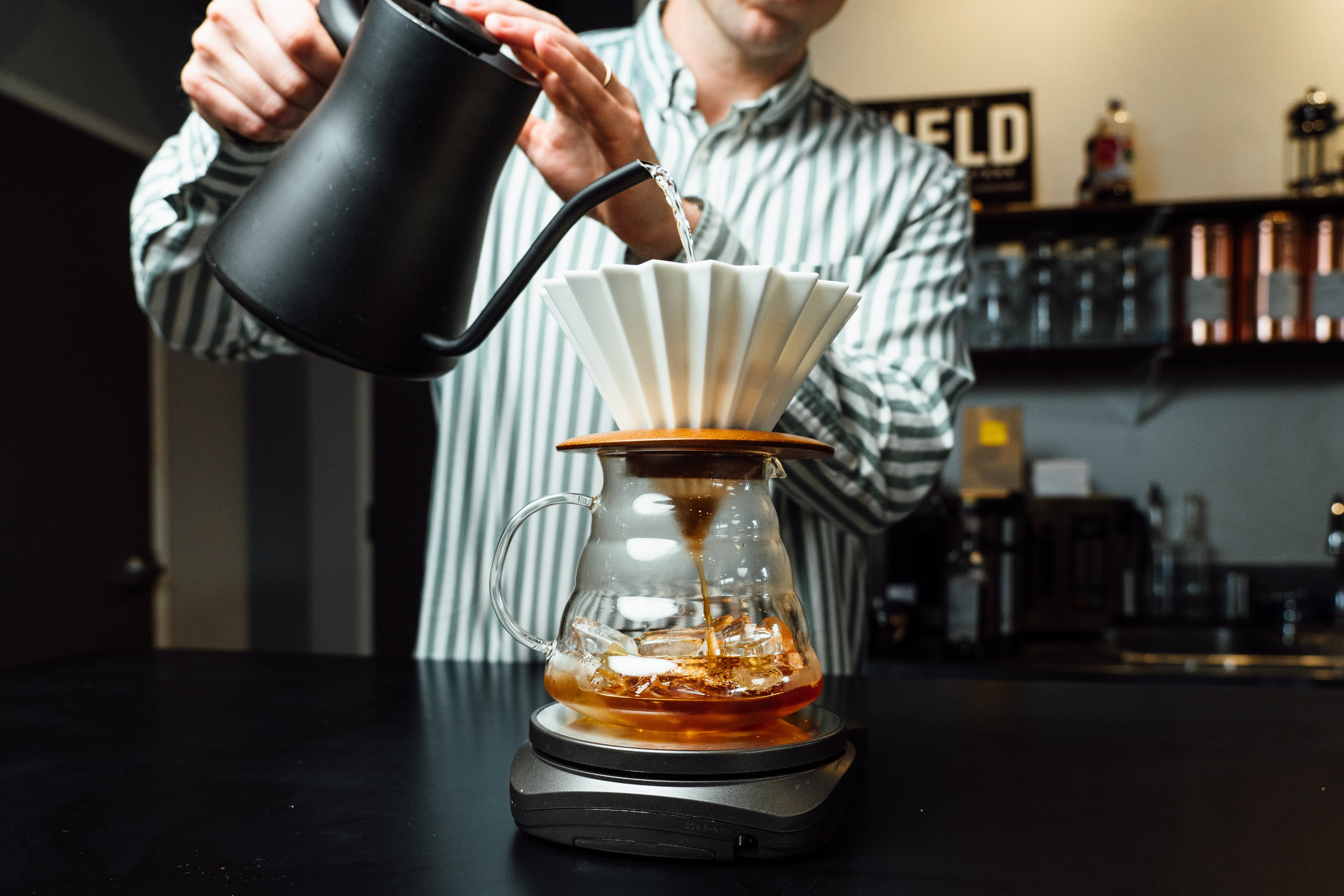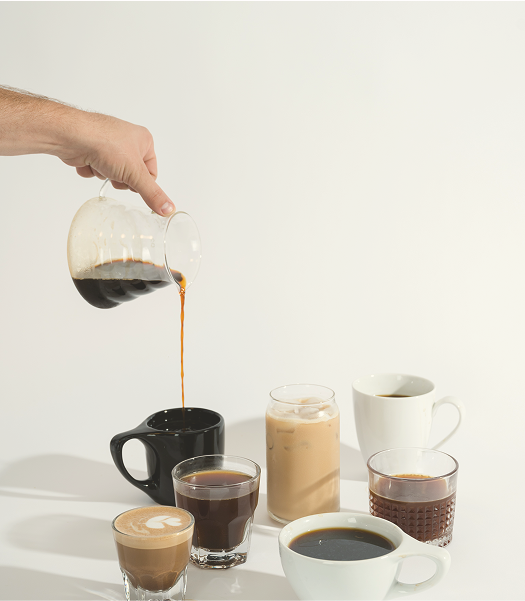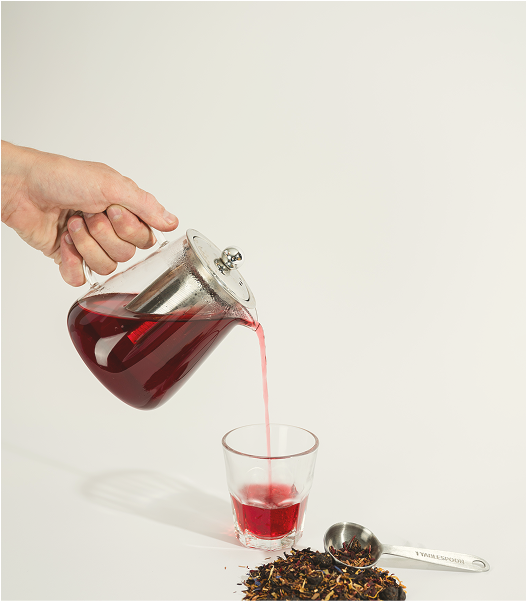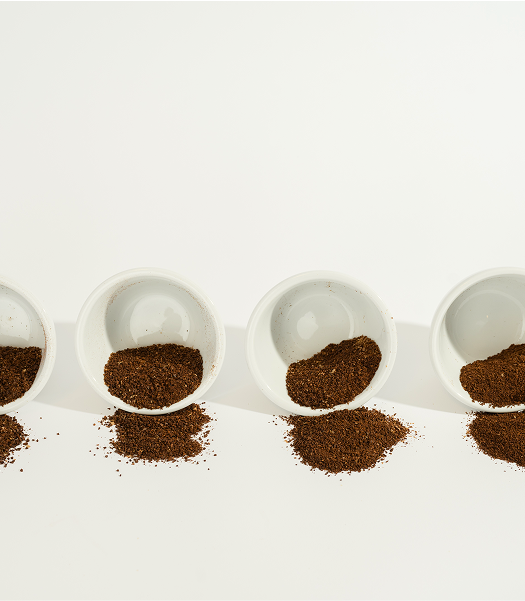Free Shipping on Orders Over $50
Ready to turn your coffee shop vision into reality? This guide offers a free, downloadable coffee shop business plan template specifically tailored for aspiring coffee shop owners. Whether you're a seasoned entrepreneur or a passionate barista ready to take the leap, this streamlined planning process will help you create a comprehensive business plan and navigate the path to success. Discover how to open a coffee shop with our expert tips and insights.

Why a Business Plan is Your Coffee Shop's Best Friend
A well-crafted business plan is more than just a document; it's the roadmap to your coffee shop's success. It challenges you to examine the intricacies of your coffee shop concept, from the perfect brew to the ideal customer experience. It helps you:
- Uncover Hidden Opportunities: The planning process often reveals unexpected income streams and innovative business models that can elevate your coffee shop beyond the ordinary.
- Refine Your Vision: By articulating your goals, target audience, and unique value proposition, you'll gain clarity on what sets your coffee shop apart.
- Secure Funding: If you're seeking financial support, a comprehensive business plan demonstrates your preparedness and commitment to potential investors or bank loans.
Our Simple Template: Your Starting Point
Whether you're a solopreneur or dreaming of a bustling café, this template will guide you through the essential steps of creating a business plan for your coffee shop. We'll cover everything from your mission statement to financial projections, ensuring you're equipped to make informed decisions and build a thriving business. Let's dive in and brew up your success story!
The Daily Brew (Example) Business Plan
1. Executive Summary
[The Daily Brew] will be the go-to destination for craft coffee and community in the heart of [Midwest Town]. Catering to both young professionals seeking a cozy workspace and families looking for a welcoming retreat, our unique blend of ethically sourced coffee, locally baked goods, and inviting atmosphere fills a gap in the local market. With the specialty coffee market projected to reach $237.6 billion by 2025, and growing demand for spaces that foster connection, The Daily Brew is uniquely positioned to thrive. We seek $100,000 in funding for equipment, leasehold improvements, and launch marketing, projecting $250,000 in revenue by the end of the first year.
2. Company Description
The 'Why': Inspired by a love for coffee and community, The Daily Brew aims to create a welcoming space where people can connect, work, and relax over a delicious cup.
Vision: To become a beloved community hub in [Midwest Town], fostering connection, creativity, and a sense of belonging.
Mission: To cultivate genuine connection through exceptional coffee, warm hospitality, and a passion for our community.
Values:
- Community First: Supporting local artisans and fostering a sense of belonging.
- Quality Obsessed: Sourcing the finest coffee beans and crafting every drink with care.
- Inviting Atmosphere: Embracing warmth and comfort, designed for everyday moments.
- Sustainable Practices: Minimizing environmental impact through responsible sourcing and waste reduction.
3. Market Analysis
The Ideal Customer:
- Young Professionals: Seeking a productive, stylish workspace with reliable Wi-Fi and exceptional coffee.
- Families: Looking for a welcoming atmosphere with kid-friendly options for weekend outings.
- Coffee Enthusiasts: Drawn to our diverse menu of high-quality, locally-roasted coffee and unique brewing methods.
Competitor Analysis:
- [Competitor 1]: Fast-paced, limited menu, generic atmosphere.
- [Competitor 2]: Caters to college crowd, loud atmosphere, inconsistent quality.
- [Competitor 3]: Focuses on sugary drinks, not conducive to work or community.
The Coffee Market in [Midwest Town]:
- Growing demand for specialty coffee and local roasts.
- Increasing preference for unique experiences and ethical sourcing.
- Rising remote work trend creates a need for comfortable, productive spaces.
4. Competitive Advantage
The Daily Brew stands out by offering:
- Inviting Atmosphere: Cozy, comfortable space designed for work, socializing, and relaxation.
- Community Focus: Regular events, local artist showcases, partnerships with local businesses.
- Expertly Crafted Coffee: High-quality, ethically sourced beans, expertly prepared by skilled baristas.
- Locally Sourced Food: Fresh, seasonal treats from local bakeries and food vendors.
- Eco-Conscious Practices: Sustainable sourcing, compostable packaging, discounts for reusable cups.
5. Products & Services
Drinks: Espresso-based, drip coffee (light, medium, dark, single-origin), cold brew, nitro cold brew, specialty lattes, tea (hot & iced), hot chocolate, cider, Italian soda, bottled juices.
Food: Locally baked pastries, muffins, scones, croissants, cookies, breakfast sandwiches, quiche, avocado toast, gluten-free & vegan options.
Value Proposition: High-quality, ethically sourced coffee & tea; fresh, local food; diverse menu catering to different tastes and dietary needs.
6. Operations & Standard Operating Procedures (SOPs):
Business Structure: Limited Liability Company (LLC)
Permits: [List required permits]
Education/Certifications: [Barista training, food handling certifications]
Roles & Responsibilities:
- Owner: [Your Name] - Overall management, finances, marketing
- Co-Owner: [Co-Owner's Name] - Operations, HR, customer service
- Baristas (2 full-time, 2 part-time): Crafting drinks, customer service
- Baker (part-time): Baking fresh pastries
- Cleaner (part-time): Maintaining cleanliness
SOPs:
- Opening/closing procedures
- Drink preparation guidelines
- Customer service standards
- Cleaning & maintenance protocols
Supply Chain:
- Coffee Beans: [Local Roaster Name]
- Tea: [Supplier Name]
- Milk & Dairy: [Local Dairy]
- Pastries & Baked Goods: [Local Bakery]
- Other: [List other suppliers and products]
Inventory Management & Quality Control: [Describe processes]
Vendor Relationships & Sustainability: [Outline your approach]
7. Marketing Plan
- Personality: Approachable, warm, community-oriented
- Tagline: "Your Daily Dose of Community & Coffee"
- Visuals: Logo with warm, earthy colors, social media aesthetic that reflects your brand
Marketing Channels:
- Social media (Instagram, Facebook), local events (farmers markets, festivals), partnerships with local businesses, email marketing, loyalty program
Marketing Budget:
- Initial budget for first 3 months: $5,000
- Social media advertising: $2,000
- Print materials (flyers, menus): $1,000
- Event sponsorships: $2,000
8. Financials
Startup Costs: We estimate the total startup costs for The Daily Brew to be approximately $95,000. These costs include:
- Equipment: Espresso machine, grinders, brewing equipment, refrigeration, POS system.
- Leasehold Improvements: Renovations to create a welcoming and functional space (counter, seating, decor).
- Initial Inventory: Coffee beans, tea, food, supplies.
- Marketing and Advertising: Launch campaign to build awareness.
- Legal and Professional Fees: Business registration, permits, and legal consultations.
- Contingency Fund: To cover unexpected expenses.
Additional Costs: (This is where the extra $25,000 might be allocated)
- Initial rent and security deposit
- Additional equipment (e.g., pastry case, outdoor seating)
- Pre-opening staff training
Funding: To secure the necessary funding, we will invest $45,000 of our personal savings and seek a $50,000 small business loan. We are confident in our ability to secure this loan based on our strong business plan, experience in the industry, and detailed financial projections.
Financial Projections (Years 1-3):
Year 1:
- Revenue: $150,000 - $250,000
- Challenges: Establishing a customer base, building brand awareness, managing initial expenses, and fine-tuning operations.
Year 2:
- Revenue: $200,000 - $325,000
- Growth: Increased customer loyalty, word-of-mouth marketing, potential menu expansion, and streamlined operations.
Year 3:
- Revenue: $250,000 - $375,000
- Stability: Consistent customer base, established brand reputation, potential for higher profit margins due to optimized operations.
Typical percentages of coffee shop expenses
- Labor: 30%
This includes wages, payroll taxes, and benefits for baristas, cashiers, kitchen staff, and management. - Cost of Goods Sold (COGS): 30%
This includes the cost of coffee beans, tea leaves, milk, syrups, flavorings, pastries, sandwiches, and other food and beverage ingredients. - Rent/Occupancy Costs: 15%
This includes rent or mortgage payments, property taxes, and insurance. - Operating Expenses: 10-15%
This includes utilities, repairs and maintenance, marketing and advertising, cleaning supplies, and other general expenses. - Profit Margins: 7-15%
This is the amount of revenue remaining after all expenses have been paid. It can vary widely depending on the efficiency of the coffee shop's operations, pricing strategies, and other factors.
Other Considerations:
Premium Ingredients, Premium Experience: Our 30% COGS reflects our commitment to sourcing the finest, locally-sourced ingredients, which translates into exceptional quality and taste for our customers. This investment in quality not only creates a superior product but also supports our local community and strengthens our brand identity.
Strategic Pricing: While our COGS may be higher than some competitors, our carefully crafted pricing strategy ensures profitability. We will balance our prices to reflect the value of our premium ingredients and unique customer experience, while remaining competitive in the market.
Financial Vigilance: We will closely monitor our expenses, sales data, and COGS percentage to ensure we're maintaining healthy profit margins. This allows for agile adjustments in pricing and operations as needed.
Growth Opportunities: We'll explore additional revenue streams like merchandise sales, catering services, and partnerships with local businesses. These not only boost our financial health but also further our community involvement, a key differentiator for The Daily Brew.
Confidentiality Agreement
The undersigned reader acknowledges that the information provided in this business plan by [Your Name] and [Co-Owner's Name], other than information in the public domain, is confidential in nature. Any disclosure or use of this information without express written permission from The Daily Brew may cause serious harm or damage. The undersigned agrees not to disclose it without such permission.
Signature: ___________________________
Name (Printed): ___________________________
Date: ___________________________
How to Use This Template
Copy & Paste: Copy & paste this template into a new document
Fill in the Blanks: Replace the bracketed placeholders with your specific information and details.
Research: Conduct thorough research to gather accurate data for your market analysis and financial projections.
Get Feedback: Ask trusted individuals for feedback on your plan.
Remember: Your business plan is a living document. Revisit and update it regularly as your business grows and evolves.
[Your Coffee Shop Name] Business Plan Template
1. Executive Summary
The Hook: [One sentence that captures the essence of your coffee shop.]
Target Market: [Describe your ideal customers in 1-2 sentences.]
Differentiation: [Highlight what sets you apart from the competition in 1-2 sentences.]
Financial Projections: [Briefly state your funding needs and revenue goals.]
2. Company Description
The 'Why': [Share your personal inspiration for starting a coffee shop.]
Vision: [Describe your long-term goals and impact on the community.]
Mission: [State your purpose, approach, and differentiator.]
Values: [List 3-4 core values that guide your business.]
3. Market Analysis
The Ideal Customer: [Provide detailed demographics and psychographics of your target customers.]
Competitor Analysis: [Analyze direct and indirect competitors, highlighting their strengths and weaknesses.]
The Coffee Market: [Discuss local and national trends in the coffee industry, emphasizing your niche.]
4. Competitive Advantage
Differentiators: [Clearly articulate what sets your coffee shop apart from the rest.]
Customer Benefits: [Explain how your differentiators will benefit your target customers.]
5. Products & Services
Menu: [Detail your coffee and tea offerings, pastries, food items, and any other products.]
Pricing: [Include pricing information for each item.]
Value Proposition: [Explain how your products/services meet your customers' needs and wants.]
6. Operations & Standard Operating Procedures (SOPs):
Business Structure: []
Permits: [List required permits]
Education/Certifications: [Barista training, food handling certifications]
Roles & Responsibilities:
- Owner: [Your Name] - Overall management, finances, marketing
- Co-Owner: [Co-Owner's Name] - Operations, HR, customer service
- Baristas (2 full-time, 2 part-time): Crafting drinks, customer service
- Baker (part-time): Baking fresh pastries
- Cleaner (part-time): Maintaining cleanliness
SOPs:
- Opening/closing procedures
- Drink preparation guidelines
- Customer service standards
- Cleaning & maintenance protocols
Supply Chain
- Coffee
- Tea
- Pastries & Baked Goods
- Milk
- Paper Goods
- Cleaning Supplies
- Other Supplies
7. Marketing Plan
Branding & Messaging: [Develop a strong brand identity and messaging that resonates with your target audience.]
Marketing Channels: [Choose the marketing platforms that will most effectively reach your customers.]
Marketing Budget: [Allocate a budget for your marketing efforts.]
8. Management
Team: [Describe the experience and skills of your management team.]
Legal Structure: [Specify your business structure.]
9. Financials
Startup Costs: [List all the expenses you'll incur to get your coffee shop up and running.]
Funding: [Explain how you'll finance your business.]
Financial Projections: [Include income statements, cash flow statements, and balance sheets for the next 3-5 years.]
10. Confidentiality Agreement
[Include a confidentiality agreement to protect your business plan's sensitive information.]
Ready to elevate your business with exceptional coffee? If you're looking to partner with a roaster who values quality, sustainability, and community, we invite you to explore our wholesale program. Visit our wholesale page to learn more about our offerings and how we can help your business thrive. Let's brew success together!





